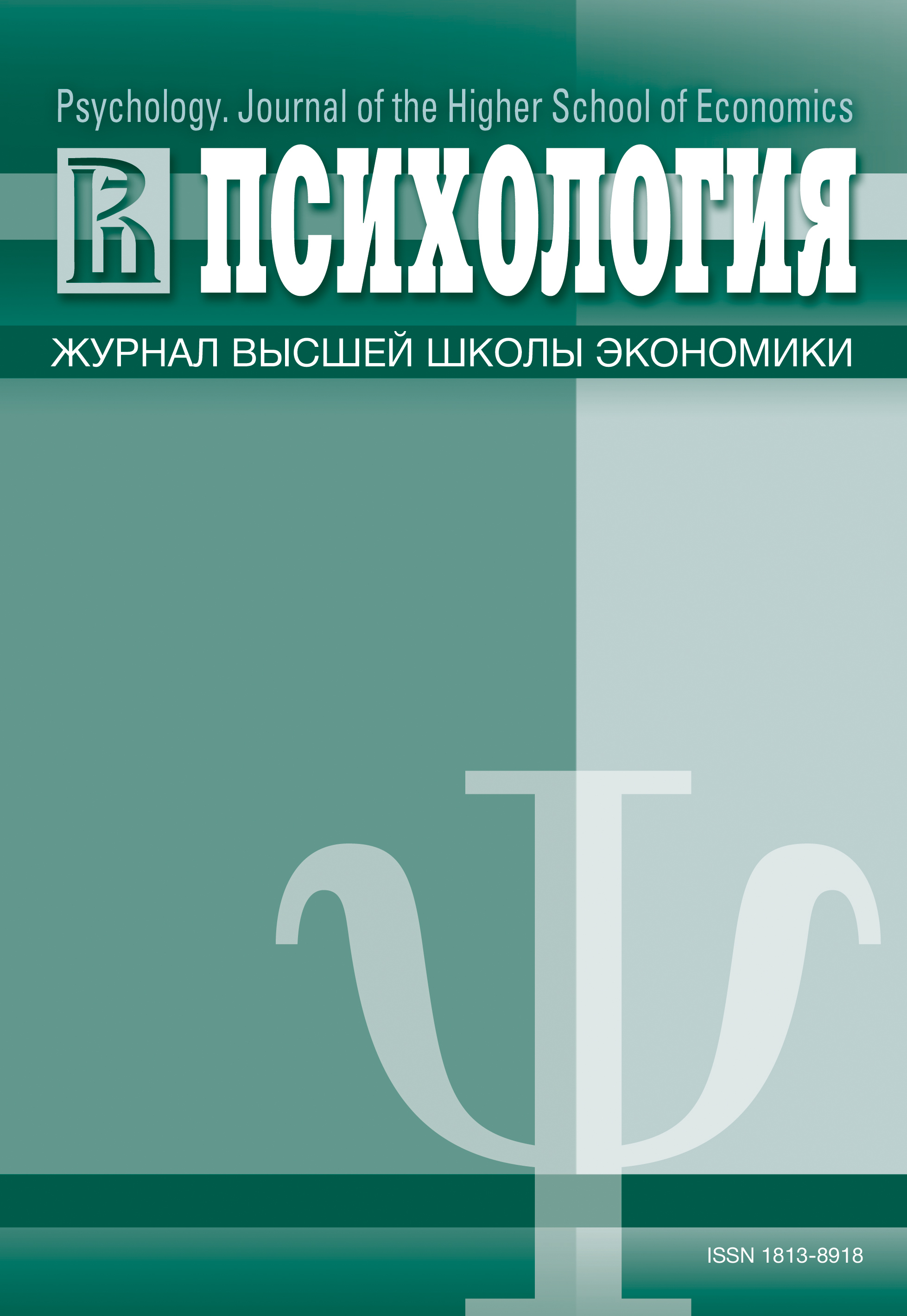Prior Knowledge Influence on Categorization Rule Discovery and Modification During Usage
Keywords:
categorization, perception, notion formation, label, semantic memory
Abstract
An experimental study looked into the way existing knowledge influences the way subjects construct the rules of categorization and modify them as they are applied. We modified the experiment of E. Wisniewski and D. Medina (1994) by asking the respondents not only to create a categorization rule, but also to use it to categorize new images, and we looked at the frequency and type of subsequent rule modification. The respondents, 114 university students, were given a set of images drawn by children and asked to identify their common features under one of the four conditions: relevant prior knowledge (participants were told that the drawings were made by children with high and low creativity), standard condition (participants were told the drawings were made by children from groups A and B), standard condition with examples (one sample of drawings from each group was shown), and irrelevant knowledge. We found that in the relevant prior knowledge setting, compared to the other three, the respondents tended to construct more complex and abstract rules and to change them more frequently when they categorized new objects. We also found that rule modifications during usage led to more complex and abstract rules under all four conditions. We interpret the findings as evidence for two stages of categorization, the first consisting in search for existing generalizations in semantic memory, and the second in adaptation of prior knowledge to current conditions.Downloads
Download data is not yet available.
Published
2014-06-04
How to Cite
КотовА. А., & БангураМ. (2014). Prior Knowledge Influence on Categorization Rule Discovery and Modification During Usage. Psychology. Journal of the Higher School of Economics, 11(1), 164-173. https://doi.org/10.17323/1813-8918-2014-1-164-173
Issue
Section
Work in Progress





